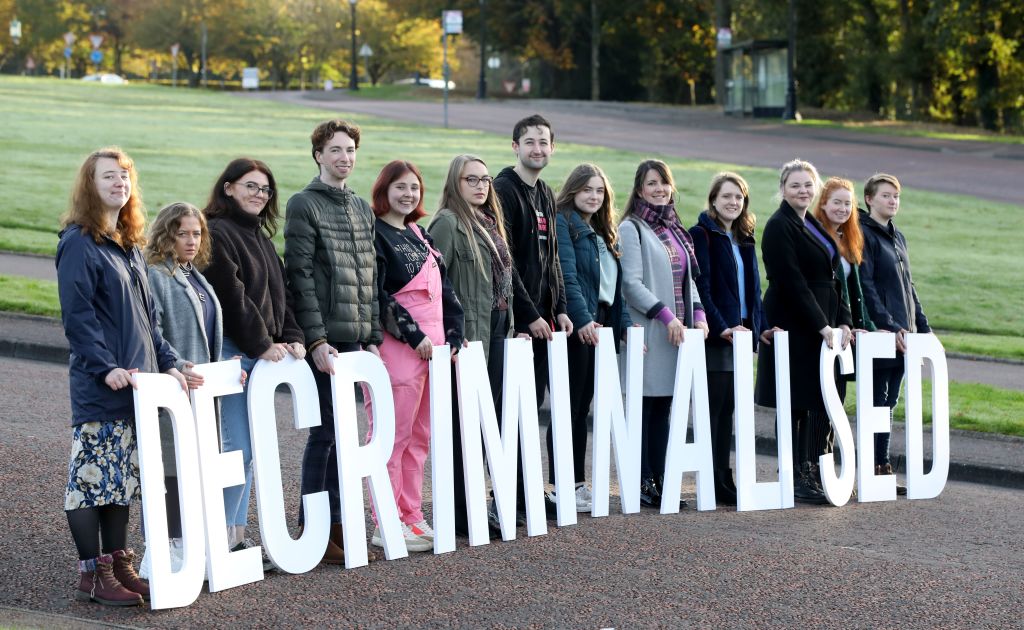Curious, isn’t it, how sentiment changes on a critical issue all of a sudden? Not so long ago, the prospect of turning a blind eye to someone who carried out an abortion in the last trimester of pregnancy – that is, on a foetus of six to nine months’ gestation – would have seemed unthinkable.
Is this trend towards liberalising abortion really a sign of progress?
At present, the only circumstances in which you can abort a foetus after 24 weeks is if the mother’s life is at risk or the child would be born with a ‘severe’ disability (which has included cleft palate and hare lips, remediable conditions) – which is itself pretty hard to square with the spirit of equalities legislation, as Liam Fox points out.
But now the Criminal Justice Bill is coming up, with an amendment tabled by Labour MP Diana Johnson which would exempt women from prosecution for going ahead with abortions after the current time limit. The remarkable thing is that normally moderate parliamentarians like the Chancellor Jeremy Hunt are said to be in favour, as well as the usual crowd – including, it would seem, the Health Secretary Victoria Atkins.
But, it seems, the public isn’t with them. A new poll suggests over half, 55 per cent, of respondents oppose decriminalising abortion by removing sanctions from abortions after the legal limit, with only 16 per cent in favour.
This shake-up is a response to police in England and Wales investigating women for breaching Section 58 of the 1861 Offences Against the Person Act for procuring their own abortions. The best known case was that of Carla Foster who was jailed for taking abortion pills when she was 32 to 34 weeks’ pregnant. Prosecutions of this kind were vanishingly rare before 2020. But Foster was prosecuted in part for dishonesty about how far along her pregnancy was during a remote consultation. This ‘pills by post’ scheme, introduced in lockdown, allows pregnancies up to ten weeks to be terminated by prescribing abortifacients remotely, following a phone consultation.
In 2022, that change was made permanent. The result was that the number of abortions following a telephone consultation shot up, so that now over half of abortifacients are prescribed remotely and taken at home.
Of course, if you don’t have an appointment with an actual human being when abortion pills are prescribed, it can be hard to know whether you are in the early stages of pregnancy or heavily pregnant, as Carla Foster was. Obviously, in the latter case, it is bad news for the baby which, if it’s older than 24 weeks and even before, might be developed to the point where it can survive outside the womb, though it’s discernibly human way before that. But it’s also bad for the woman, because the chances of complications, psychological and physical, from having an abortion at that point are high.
The rational response to the problem, you’d think – and the risk that there might be others like Foster – would be to revert to the situation where abortion pills are prescribed following a face-to-face consultation with a medic or midwife. But Diana Johnson’s abortion amendment would take away any grounds for prosecutions under criminal law. We would, therefore have a notional limit on abortion but no sanctions for violating it.
Diana Johnson has form on this subject. In 2016, she brought forward a similar amendment which was supported by the British Pregnancy Advisory Service with the slogan ‘We Trust Women’. Not wanting to diss my own sex or anything, but the idea you can trust half the human race seems like borderline sexism. Is this trend towards liberalising abortion really a sign of progress? Criminal sanctions are designed to act as a deterrent to those, like Foster, who break the rules. Without them, it seems likely that there will be other women who opt to have a late-stage abortion.
Not all MPs want to liberalise Britain’s abortion laws: there’s another amendment to the Bill to reduce the time limit on abortion to 22 weeks. That’s still higher than the European average, 12 weeks, but it’s the age at which many neonates survive. In 2020 and 2021, there were 261 babies born at 22- and 23-weeks’ gestation. More than one in three can and do survive – and at 24 weeks, that rises to 60 per cent. But if the Johnson amendment passes, it’ll be a pretty academic matter anyway, because there’ll be no criminal sanctions for those who exceed the time limit for abortions.
The slogan we’ll be hearing a lot in the context of all this is that ‘abortion is healthcare’. Actually, it’s not. Healthcare doesn’t usually involve the wilful ending of a human life.








Comments